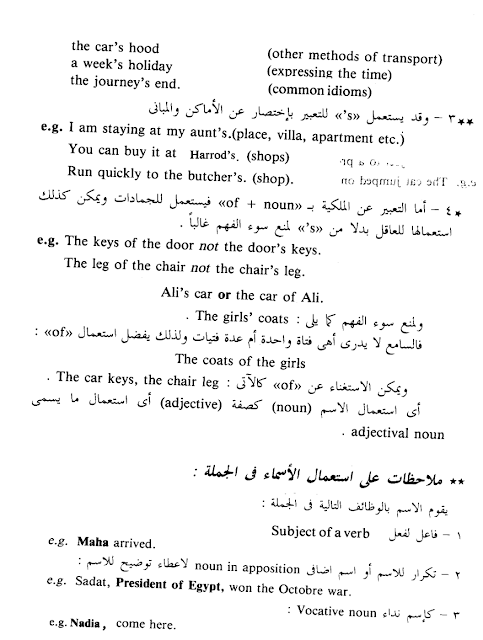Noun modifiers
Noun modifiers
the village church; the car door; the kitchen window; the chair leg;
my coat pocket; London residents
|
Warning
|
|
We do not use a possessive form for these things. We do not talk about: |
a gold watch; a leather
purse; a metal box
We often use noun modifiers with nouns ending in -er
and -ing:
an office worker; a jewellery maker; a potato peeler; a
shopping list; a swimming lesson; a walking holiday.
We use measurements, age
or value as noun modifiers:
a thirty kilogram suitcase;
a two minute rest; a five
thousand euro platinum watch; a fifty kilometer
journey;
We often put two nouns together and readers/listeners have
work out what they mean. So:- an ice bucket = a bucket to keep ice in
- an ice cube = a cube made of ice
- an ice breaker = a ship which breaks ice
- the ice age = the time when much of the Earth was covered in ice.
London office workers; grammar practice exercises
Position of noun modifiers
Noun modifiers come after adjectives:
The old newspaper seller
A tiring fifty kilometer journey

Comments
Post a Comment